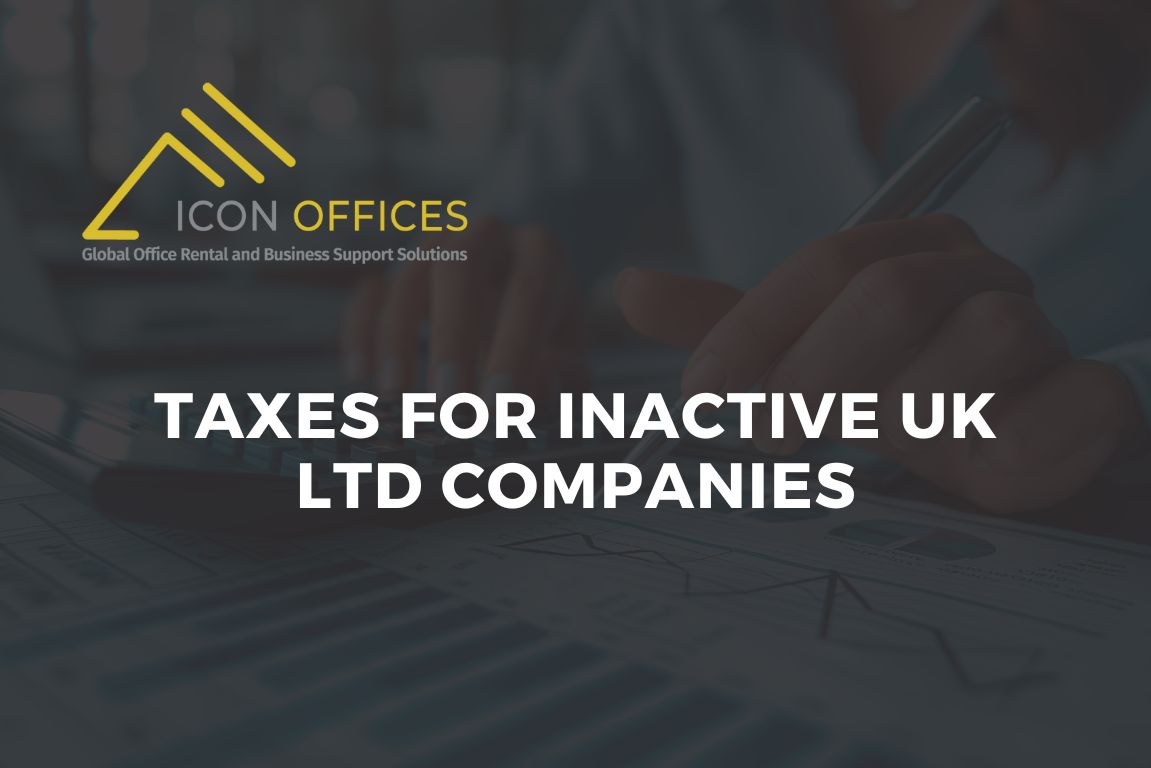Understanding Tax Obligations for Inactive LTD Companies in the UK

To file your annual taxes or to receive expert guidance, please contact us.
If your limited company is inactive, it is essential to understand tax obligations. Limited companies are subjected to Corporation tax on their profits.
Whether a limited company is trading or dormant, they must deliver annual accounts and a confirmation statement to Companies House each year. However, when it comes to taxes, dormant companies do not need to pay Corporation Tax or file another Company Tax Return once they’ve notified HM Revenue & Customs (HMRC) unless they receive further notice to deliver a Company Tax Return.
Here is a guide to help you understand the tax obligations of inactive limited companies.
What is a dormant limited company
A dormant company is a company that has been registered with Companies House but is not actively trading and does not have any other income. Essentially, it’s a company that isn’t involved in business activities or generating revenue.
A company can have a dormant status if a significant accounting transaction has not occurred such as:
· filing fees paid to Companies House
· penalties for late filing of accounts
· money paid for shares when the company was incorporated.
What to do if your company is dormant?
Inform HMRC
If your company has stopped trading and has no other income, you can inform HMRC that it’s dormant for Corporation Tax purposes. You won’t need to pay Corporation Tax or file another Company Tax Return unless you receive further notice to do so or your business starts trading and generating revenue.
However, you must still file annual accounts and a confirmation statement with Companies House even if your company is dormant.
Iconoffices can help you submit Dormant Accounts with Companies House and notify HMRC that your company is dormant for only £100.
If you’re registered for VAT, deregister within 30 days of your company becoming dormant if you don’t intend to trade again. If you plan to restart trading, submit ‘nil’ (empty) VAT returns while your company remains dormant.
If you employ people, consider closing your PAYE scheme if you don’t plan to restart trading in the current tax year.
Winding up process
If your company is in the process of being wound up, it remains subject to Corporation Tax requirements. The winding-up period starts when shareholders pass a resolution, a court imposes a winding-up order, or a liquidator is appointed.
Selling assets
If your company sells assets separately (e.g., machinery, vehicles, customer lists) after ceasing trading, it’s liable to pay Corporation Tax on any chargeable gains and profits from asset disposal.
If your company is inactive, you must comply with legal requirements. They must still file annual accounts and submit confirmation statements to Companies House yearly. It is also necessary to comply with the tax and accounting obligations that are required in all companies.
A company does not need to tell Companies House if they restart trading, however, you must notify HMRC. If your company has started trading for the first time, you must register for Corporation Tax with HMRC.
If a dormant company is no longer needed, directors can choose to close their company. However, the company dissolution process can be tricky since there are some legal obligations that you need to adhere to before you can close your company.Icon Offices can help you close your company without any hassle. We will handle the entire process from the initial application process through to ensuring it is listed on the First Gazette. We will also speak to Companies House on your behalf to address any queries they may have.
For more information contact us at, info@iconoffices.co.uk.